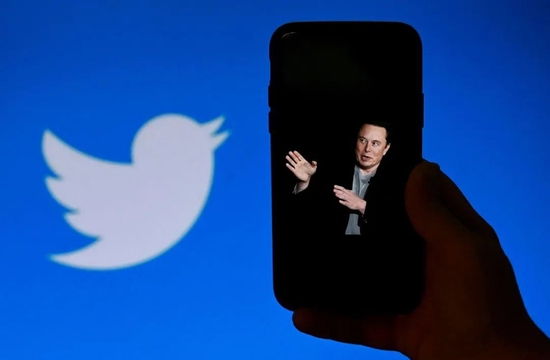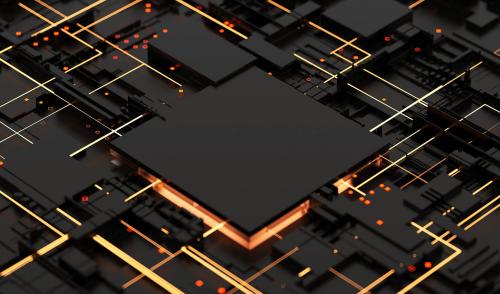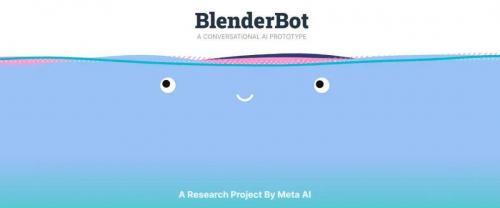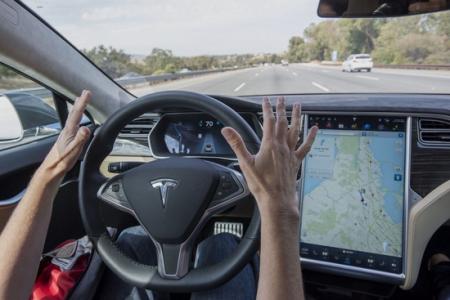your current location is:Home > Finance > NewsletterHomeNewsletter
Musk's $44 billion acquisition of Twitter: why the ups and downs? Why reverse?

Now, everyone agrees that the new owner of Twitter is Elon Musk. According to multiple media reports, on October 27, local time, Musk’s $44 billion acquisition of Twitter has been completed.
On April 14 this year, Musk announced that he would buy Twitter for $54.20 per share. Twitter accepted the deal. On July 8, Musk unilaterally announced the suspension of the acquisition. Twitter then sued to try to get it to comply with the contract, with a trial date set for October 17. On October 4, Musk submitted another letter to the SEC confirming that the acquisition would be completed in accordance with the terms of the original agreement.
After half a year of tug-of-war, the biggest and most chaotic acquisition in the history of the tech industry has had a phased result. But that may not be the end of the story.
On October 26, Musk posted a video of himself walking into Twitter's headquarters with the kitchen sink in his arms, with the caption: "It's time to think about this (let that sink in)." Sink also means sink. . Changed his public profile to "Chief Twit" (Twitter boss).
外界开始期待马斯克对Twitter的改造,马斯克也展示了自己的雷霆速度。就在收购完成的同一时间,有报道称,马斯克立即解雇了公司的几名高管,包括首席执行官帕拉格·阿格拉瓦尔(Parag Agrawal)、首席财务官内德·西格尔(Ned Segal)、马斯克曾公开批评的公司政策政策总监维贾亚·加德(Vijaya Gadde)、总法律顾问肖恩·埃吉特(Sean Edgett)和首席客户官莎拉·佩索内特(Sarah Personette)。他们分别获得了3870万美元、2540万美元、1250万美元和1120万美元的赔偿。
此前有媒体报道称,马斯克计划在完成收购后,裁掉Twitter近75%的员工。马斯克否认了75%这一数字,但他表示,仍然计划裁员。
世界上最具影响力的社交媒体网络将和世界上最具能量的商业领袖相绑定,过程如此波折,凸显多方利益博弈的激烈。在预测未来还将会发生什么之前,有一些重要信息值得关注。
更大的代价
收购Twitter,当下看对马斯克并不划算,尤其是经过半年的拉锯,马斯克也未能把收购价格降下分毫。而由于宏观环境变化,美国科技行业正处于史上最严重的低迷中,Twitter的商业价值已经显著低于半年前。
那么,是什么促使了马斯克在最后的审判日期之前改变主意?
马斯克在10月初写给美国证券交易委员会(SEC)的信信息量巨大。主要内容是两句话,第一句:本次收购继续进行的前提条件之一,是收到杠杆收购部分的融资。
马斯克的收购资金主要来源有三部分:一是私募股权融资,二是包括质押了特斯拉股票的个人出资,三是传统杠杆收购,也就是债务融资。SEC文件显示,其中,属于债务融资的部分,包括约65亿美元杠杆贷款、30亿美元担保债券和30亿美元无担保债券。
Caijing mentioned in a previous article that before April this year, Twitter’s board of directors did not accept Musk’s acquisition. The key turning point is that on April 21, Musk announced that he had received more than $46.5 billion in acquisition financing, including $13 billion in bank loans. Coupled with the decline in US stocks, Twitter’s board of directors agreed to the transaction.
This money is not directly contributed by the bank, but by the large institutional investors behind it. Then, some unexpected changes happened - with the Fed raising interest rates in a row, the market was sluggish, and financing huge debts became difficult. According to Bloomberg, especially for unsecured bond financings, it is difficult for institutional investors to pay. “Leveraged buyout funders in the market today see Twitter like a vegan into a steakhouse.”
This may explain the lengthy tug-of-war over fake accounts after the two sides approached a deal in April. In May, Musk abruptly asked Twitter to release details on the number of spam and fake accounts, putting the acquisition on hold for now. In June, Musk said he had a super bad hunch about the U.S. economy. In July, Musk announced that he was ending his planned $44 billion acquisition of Twitter, citing Twitter's serious breaches of various terms of the agreement. During the same time period, Tesla suspended hiring globally and plans to cut 10% of its regular workforce over the next three months. Musk said that the next wave of recession in the United States will come in the short term.
That said, the uncertainty surrounding rising interest rates and a potential recession makes the acquisition riskier. For Musk, he tried to make amends and stop losses in time for various reasons, but in the end he paid a higher price than when he made the acquisition offer.
Twitter's Countermeasures
So, what did Twitter use to "force" Musk into submission?
According to a letter Musk sent to the SEC in early October, the second prerequisite for the continuation of the acquisition is that Twitter immediately suspend its lawsuit against Musk and stop all legal actions related to the case.
There is already a $1 billion breakup fee between Musk and Twitter. According to the agreement reached by Musk and Twitter in April this year, if either party interrupts the transaction, it will pay the other party a reverse termination fee of $1 billion (Reverse Termination Fee). However, in July, when Musk unilaterally terminated the acquisition, Twitter was unwilling to break up peacefully, but sued Musk in the Delaware Commercial Court, asking him to fulfill the acquisition.
Recently, with the disclosure of some relevant forensics, the situation has changed again.
Some of the text messages from Musk and Twitter executives are intriguing. These text messages did not involve much discussion of false information, but exposed two key pieces of information: First, Musk acquired Twitter, mainly for his good friend Jack Dorsey, the former Twitter CEO who was excluded by Twitter's board of directors, to "revenge a private revenge"; The second is that Musk regretted the acquisition midway through, seemingly because of a conflict with Twitter CEO Agrawal, who had asked Musk to stop posting negative information on Twitter.
For Musk, this has had a huge negative impact on his image. However, that's just the tip of the iceberg, and Twitter's lawyers have the power to subpoena Musk's associates for informational investigations -- there's no way to predict what will be made public in those investigations.
In addition, there are media reports that during a pretrial hearing last week, some third-party agencies provided investigations into Twitter's existence of false information, and the results of these investigations did not meet Musk's expectations.
That is to say, with the investigation and evidence collection, the direction of this lawsuit is becoming more and more unfavorable for Musk. This may have been a key contributor to its eventual change of heart.
limited commercial value
Putting aside Musk's tug of war with Twitter, Twitter itself isn't a high-commercial company -- especially now.
In 2006, Twitter was hatched from the blogging company Odeo. After a series of landmark events such as the high-profile launch at the music festival, the surge of early users, and the return of the founder after the exit, the company has never lacked attention and discussion.
Whether it is a competitor or the capital market, all of them attach great importance to Twitter. "Deciphering Instagram" (author Sarah. Friar) mentioned in the book, Facebook has twice tried unsuccessfully to acquire Twitter, and chose to acquire Instagram to compete with it.
In stark contrast to the high expectations, Twitter has struggled with commercialization. According to the book "Incubating Twitter" (author Nick Bilton), which records the company's early entrepreneurial experience, a major problem that plagues Twitter is "learning to make money for this high-growth company." The company's early CEO changes and internal disputes are also related to this.
The problem persisted until Twitter went public in 2013. Its prospectus disclosed that on the basis of sitting on 230 million monthly active users, Twitter's revenue in 2012 was 317 million US dollars, with a net loss of 79.4 million US dollars. Revenue for the first half of 2013 was $254 million with a net loss of $69.25 million. Compared with the annual revenue and IPO market value, Twitter is about 1/77. That compares with 1/28 for Facebook, which went public the year before, and 1/81 for Snapchat, another social media platform that went public in 2017.
Judging from last year’s data, Facebook’s full-year revenue in 2021 will reach $117.9 billion, with Twitter accounting for less than 1/20 of it, at $5.08 billion, and a net loss of $221 million. Among the 10 worst-performing tech stocks in the S&P 500 in 2021, Twitter is on the list, with shares down 18% for the year. Meanwhile, the company's CEO Jack Dorsey also announced his resignation at the end of the year.
It is a common perception in the market that the commercial value is hard to match. The cover story of "Barron's Weekly" pointed out when "Twitter's value will be worthy of its name", and former CEO Jack Dorsey commented that "Twitter has not achieved ad revenue growth commensurate with user growth."
By the end of 2021, Twitter said it had 217 million monthly active users, up 13% from a year earlier. By the end of 2023, Twitter expects monthly active users to exceed 315 million. With Twitter's continued active performance in a series of hot topics such as the US election, the new crown epidemic, and cryptocurrencies, capital markets generally believe that Twitter's value is based on high attention.
According to Wall Street's usual price-to-sales ratio (total market value divided by main business revenue) to calculate the valuation of Internet companies, Twitter is valued at 6.5 times its expected revenue, lower than the social media industry average of 8.5 times.
Judging from the financial performance so far from the listing, Twitter has not been able to fully realize the commercial value of the social giant. The profitability and prospects of Twitter under its current model may not be a sweet spot for Musk.
Is Musk being taken advantage of?
If judging from the above information, Musk’s acquisition is like a timely stop loss as a last resort, and has paid a huge price. But if the timeline were stretched out, it would be an interesting collision.
Musk is a loyal user of Twitter. As of now, Musk has more than 100 million followers on the Twitter platform and has a huge influence. Musk has publicly expressed his love for Twitter on several occasions, as well as his dissatisfaction on several occasions. His criticism focused on the platform's large number of fake accounts and the platform's failure to achieve freedom of speech. In March, he said he was "giving serious thoughts" a new social media platform with an open-source algorithm that prioritizes free speech and very little publicity.
The richest man has always attached great importance to "decentralization" and freedom of speech, and has thought about using blockchain technology to realize it. Forensic materials released by the court show that Musk proposed three ideas about blockchain social media in private conversations: First, users pay some money to write their messages into the blockchain (such as spending 0.1 Dogecoin). Post or forward comments), he believes that this design can isolate most spam and fake accounts, and is conducive to the protection of freedom of speech; second, establish a real-time database to store on the blockchain, as well as users received and sent Third, develop a mobile APP that can access the above databases in the cloud.
But for Twitter, he doesn't plan to use blockchain technology. Musk later mentioned in a private conversation that Twitter based on blockchain is not feasible because peer-to-peer networks cannot meet the bandwidth and latency requirements of the technology unless the "points" are "huge", which would It goes against the original intention of decentralization.
Therefore, he proposes another set of methodology. In April of this year, he said in an interview with TED that Twitter should open up the algorithm and open the editing function (showing the user's editing behavior) to eliminate the algorithmic and human behind-the-scenes manipulation.
On October 27, the day the acquisition was completed, he posted a long post describing Twitter's future. He said the acquisition of Twitter was not about making money, but because today's social media showed a tendency to divide opinions and fuel hatred, and he wanted to build Twitter into "a digital square where different views can be debated in a healthy way without resorting to violence." , which "is very important for the future of human civilization".
And in the revenue-critical advertising business, he believes that when done right, advertising can provide pleasure, entertainment and information. To do this, Twitter needs to recommend ads to users that are as relevant as possible to their individual needs. "Low-relevance ads are spam, but high-relevance ads are content." Twitter aspires to become the world's most respected advertising platform, helping advertisers strengthen their brands and grow, he said.
Musk has also previously talked about using Twitter to create a WeChat-like "X" app, a super platform that covers everything from shopping and payments to gaming. "If we could reproduce this with Twitter, we would be a huge success," Musk said.
Another market source said that Musk also plans to bring the company back to the public within 3 to 5 years.
At present, Twitter's main competitors are Alphabet, Meta, Snap and so on. Shares of these companies have more than halved this year. Among them, Snap shares, which have fallen the most, are less than a fifth of what they were a year ago. By contrast, Twitter's stock has seen the smallest decline of its peers this year, thanks to Musk's takeover bid. Twitter closed at $53.7 per share as of Oct. 27, the same level as a year ago.
related articles
Article Comments (0)
- This article has not received comments yet, hurry up and grab the first frame~












